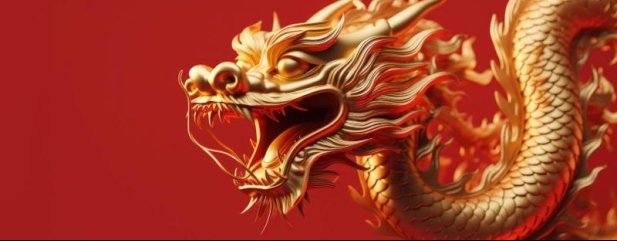Archived article
Please note that tax, investment, pension and ISA rules can change and the information and any views contained in this article may now be inaccurate.
Weaker-than-forecast second-quarter GDP adds to pressure on Chinese leaders

So far, China’s Year of the Dragon hasn’t brought investors a great deal of prosperity with the Shanghai Shenzhen CSI 300 index of Chinese shares up by less than 3% against a 15% gain for the FTSE World Index.
Recent data also suggests the economy is slowing with second-quarter GDP (gross domestic product) only rising by 4.7%, its slowest pace for five quarters and well below economists’ forecasts for a 5.1% increase.
Retail sales rose 2%, their slowest pace since December 2022 and also well below the market’s expectation of 3.4% growth, suggesting Chinese government efforts to encourage consumers and stimulate significant growth have missed the mark.
Dan Coatsworth, investment analyst at AJ Bell said: ‘China’s economic growth continues to disappoint, with the latest GDP figures missing expectations once again.
‘Investors are having to become accustomed to China running in second gear, a far cry from a decade ago when GDP growth was in the 7% region and it was the envy of the world.
‘While 4.7% GDP growth is still better than many parts of the world, and certainly streets ahead of what the UK is currently managing, it is seen as failure in the context of China’s bold ambitions to be a superpower.’
The collapse and subsequent slowdown in the Chinese property sector hasn’t helped either – the property industry accounts for approximately 70% of household wealth.
New-home prices in major Chinese cities fell for the thirteenth straight month in June.
Last year, property developers Evergrande (3333: HKG) and Country Garden (2007:HKG) fell into liquidation and in May this year Beijing relaxed mortgage rules and urged local councils to buy up unsold homes to bolster confidence.
The Chinese government also removed the nationwide mortgage rate floor for individual buyers of first and second homes and lowered the size of down-payments, as well as putting up 300 billion yuan of central bank funding to help state-backed firms to buy unsold properties from builders.
The only bright spots for the Chinese economy at the moment would seem to be industrial production and exports, although China’s strained relations with the US and the EU and the likelihood of more tariffs being introduced could represent further headwinds.
‘The government will need to mull greater policy supports to deliver its annual growth target of around 5% after the disappointing second-quarter data,’ said Xiaojia Zhi, an economist at Credit Agricole in Hong Kong, in an interview with Bloomberg.
‘The increasing likelihood of Trump 2.0 also means China will need additional policy efforts to boost its domestic demand in a timely manner as external demand downside risks loom,’ added Zhi.
DISCLAIMER: Financial services company AJ Bell referenced in this article owns Shares magazine. The author of this article (Sabuhi Gard) and the editor (Ian Conway) own shares in AJ Bell.
Important information:
These articles are provided by Shares magazine which is published by AJ Bell Media, a part of AJ Bell. Shares is not written by AJ Bell.
Shares is provided for your general information and use and is not a personal recommendation to invest. It is not intended to be relied upon by you in making or not making any investment decisions. The investments referred to in these articles will not be suitable for all investors. If in doubt please seek appropriate independent financial advice.
Investors acting on the information in these articles do so at their own risk and AJ Bell Media and its staff do not accept liability for losses suffered by investors as a result of their investment decisions.
Issue contents
Feature
Great Ideas
News
- Shares in drinks firm Diageo hit three-year lows as sales stagnate
- Capita shares rally 40% following strategic rethink and software sale
- Weaker-than-forecast second-quarter GDP adds to pressure on Chinese leaders
- Burberry shares tumble to 10-year low on latest profit warning
- US bank results highlight divide between Wall Street and Main Street
 magazine
magazine








